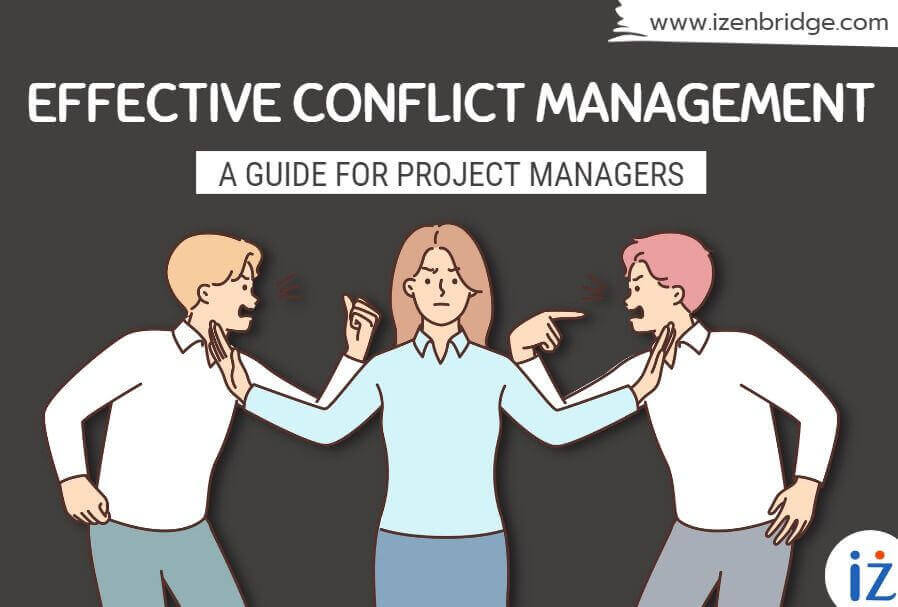

Effective conflict management is a vital skill for any professional, particularly those involved in project management. In this comprehensive guide, we delve into the depths of conflict management within the realm of project management, with an emphasis on the Project Management Professional (PMP) certification.
Conflict management isn’t just about resolving disputes; it’s an intricate art of guiding disagreements towards a productive outcome. Within the dynamic context of project management, conflicts are not only unavoidable, but they can also be beneficial. When managed correctly, conflicts can spark creativity, cultivate accountability, and enhance team dynamics, which collectively contribute to improved project performance.
Effective conflict management can give rise to several advantageous outcomes:
On the flip side, ineffective conflict management can have detrimental effects, leading to demotivation, poor performance, destructive behavior, lack of creativity, and reduced engagement. As such, project managers must master effective conflict management to prevent these negative outcomes.
Conflicts can spring from a variety of sources. To manage conflicts effectively, a project manager must first understand the root causes of these disagreements. Understanding these sources can help project managers facilitate effective conflict resolution and suggest appropriate measures to handle disagreements.
Typical causes of conflict within project teams include unclear roles and responsibilities, process gaps, lack of trust, and competing interests, especially during the storming stage of team development. Project managers must be aware of the team’s development stage, as the nature and source of conflicts can vary at each stage.
In the initial stages of team development, conflicts often stem from ambiguities around roles, responsibilities, and processes. As the team matures, conflicts can arise from differing values and perspectives. Conflicts can even arise from contrasting opinions about priorities, such as quality versus speed to market.
Proactive conflict management involves understanding the stage of conflict, which is crucial for both the PMP exam and practical reality. A conflict evolution model suggests that conflicts start at a lower level, or ‘Level 1’, perceived as a ‘problem to solve’. At this level, team members have differing views on resolving an issue, but their focus remains on the issue itself, providing an environment ripe for collaboration.
However, as conflict escalates, personal opinions might start taking precedence over collective problem-solving, leading to grouping and polarization. At its worst, the conflict reaches a point where team members either disengage from work or become antagonistic, potentially necessitating personnel changes to restore harmony.
Project managers must ensure that conflicts do not escalate beyond ‘Level 1’. High levels of conflict often indicate a shift in focus from the task at hand to personal or relational issues. Thus, if conflicts escalate, intervention becomes necessary to steer the team back towards the original task or issue.
To facilitate effective conflict management, project managers need to cultivate a conducive environment. This involves ensuring a shared understanding of project objectives, fostering an open team culture, and defining clear roles and responsibilities. Tools such as a team charter or a RACI Matrix can provide clarity about roles and responsibilities, and promoting open communication and collaboration can prevent conflicts from escalating.
Project managers also have a role in educating team members about effective communication, the importance of giving and receiving feedback, and promoting open conversation. Retrospective meetings focusing on continual improvement help identify and resolve friction points before they grow into significant conflicts.
Effective conflict management requires the use of various strategies, including smoothing or accommodating, withdrawing or avoiding, forcing, compromising, and collaborating. Each of these approaches has its unique advantages, use-cases, and potential implications:
In summary, effective conflict management involves understanding the root causes of conflict, proactively managing disagreements, and employing a suitable conflict resolution strategy. The goal is not to eliminate conflicts entirely but to ensure they remain at a manageable level. By fostering a culture that promotes collaboration, transparency, and open conversation, project managers can not only address current conflicts but also prepare for future ones in a productive and healthy manner. If you are preparing for PMP Exam, consider enrolling on our Live PMP Sessions to speed up your PMP Preparation.
| Name | Date | Place | – |
| PMP Certification and Training | 13 – 26 April 2025 | Bangalore | More Details |
| PMP Certification and Training | 10 May – 1 June 2025 | Chennai | More Details |